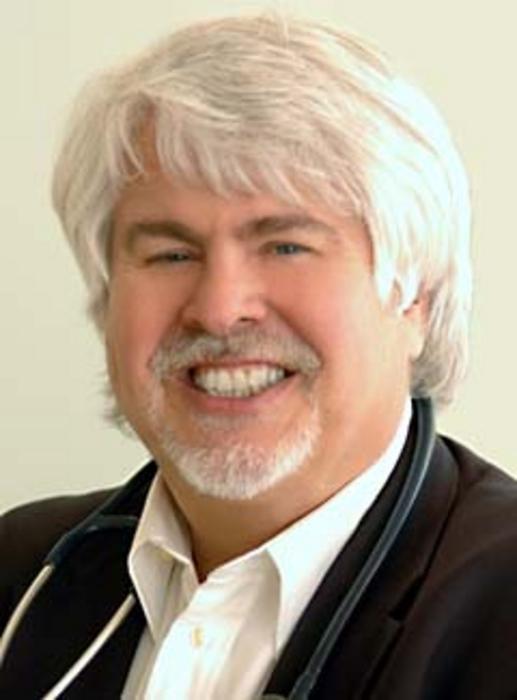Nearly a quarter of children with recurrent wheezing have “silent” lung infections that would be better treated with antiviral medications than commonly prescribed steroids that can carry lifelong side effects, new research from the University of Virginia School of Medicine reveals.

Credit: UVA Health
Nearly a quarter of children with recurrent wheezing have “silent” lung infections that would be better treated with antiviral medications than commonly prescribed steroids that can carry lifelong side effects, new research from the University of Virginia School of Medicine reveals.
Pediatric pulmonologist W. Gerald Teague, MD, was inspired to investigate after noting large numbers of children with stubborn wheezing cases referred from community providers and through the UVA Health Emergency Department. Knowing that rhinoviruses – the main cause of the common cold – can trigger wheezing episodes, Teague wanted to see if there was a link between the recurrent wheezing and “indolent” lung infections – infections that can carry no symptoms and persist for long periods.
After screening more than 800 children and teens with severe wheezing, he and his collaborators determined that 22% had undetected lung infections that did not display typical cold symptoms. These infections do not respond to corticosteroids commonly used to treat wheezing; in fact, the researchers found that higher doses of the steroids may put children at increased risk for lingering lung inflammation, in addition to known side effects such as irritable behavior, reduced bone density and suppressed growth.
“While steroids can help some children with wheeze, many children in the study showed no patterns of inflammation that would improve with steroids,” said Teague, a clinician-scientist at the School of Medicine’s Child Health Research Center. “I advise the parents of my patients that wheeze episodes that are triggered by colds should be treated with anti-inflammatory medications that build immunity to viruses, such as azithromycin. They look surprised that we would use an antibiotic for a viral infection, but, in fact, azithromycin bolsters the immune response to viruses in a positive way.”
Underlying Causes of Recurrent Wheezing
Teague and his collaborators are uncertain why the children have been unable to shake off silent lung viral infections. While rhinoviruses were by far the most common infection identified, Teague and his team detected other unresolved respiratory infections as well.
The scientists suspect something may be going awry with the mucosal immune cells in the children’s lungs that makes them unable to fight off these viruses. Notably, the problem seems to primarily affect children who are very young and becomes less common by school age, the researchers found.
Further research is needed, the scientists say, to better understand the cause of this immune malfunction and find ways to remedy it. In the meantime, doctors should rethink how they treat recurrent wheezing, Teague says. Before prescribing powerful corticosteroids, doctors need to ensure that children have inflammation that will respond to the steroids rather than lung infections that would be better treated with antivirals.
“Viral infections are the most important trigger of acute wheeze episodes in children and, in some cases, lead to respiratory distress and hospital care. We hope this discovery will stimulate further work in the treatment of recurrent wheeze and viral infections in children,” Teague said. “The field has to get to away from overuse of potentially toxic steroids for the treatment of acute wheeze to include novel therapies which target specific patterns of inflammation.”
Based on the findings, Teague plans to study whether this type of faulty immune response may also be a risk factor for children developing asthma.
Findings Published
Teague and his collaborators have published their findings in the Journal of Allergy and Clinical Immunology. The research team consisted of Teague, Cameron D. Griffiths, Kelly Boyd, Stella C. Kellams, Monica Lawrence, Thomas L. Offerle, Peter Heymann, William Brand, Ariana Greenwell, Jeremy Middleton, Kristin Wavell, Jacqueline Payne, Marthajoy Spano, Elaine Etter, Brittany Wall and Larry Borish. The researchers have no financial interest in the work.
The research was supported by the National Institutes of Health’s National Institute of Allergy and Infectious Diseases, grants 1R01AI 176171, 5R21AI151496, U01 AI123337 and R56 AI 158519; the NIH’s National Heart, Lung and Blood Institute, grant 5UG1HL139126; a NIH/integrated Translational Health Research Institute of Virginia Clinical and Translational Science Award, UL1TR003015; NIH Small Business Innovation Research grant RFA-MD-22-004; and the Human Frontier Science Program, Fellowship LT000469/2021-L.
To keep up with the latest medical research news from UVA, subscribe to the Making of Medicine blog at http://makingofmedicine.virginia.edu.
Journal
Journal of Allergy and Clinical Immunology



